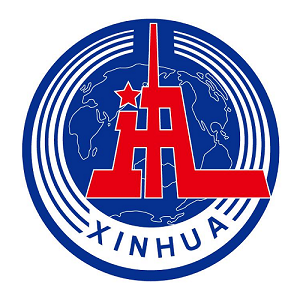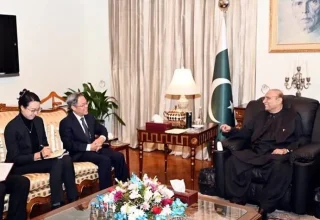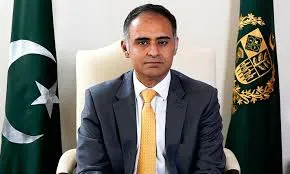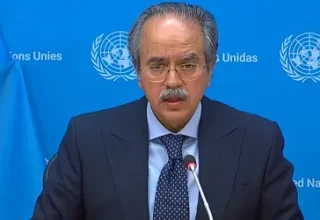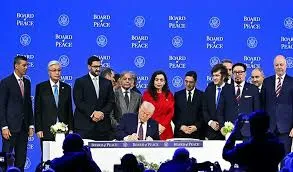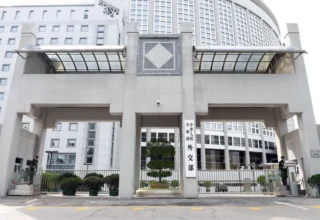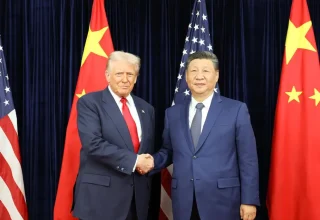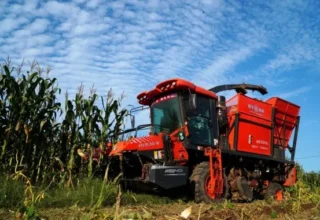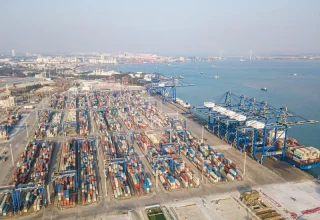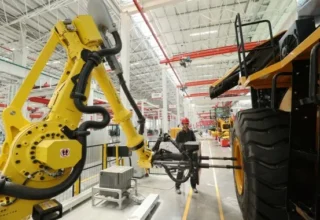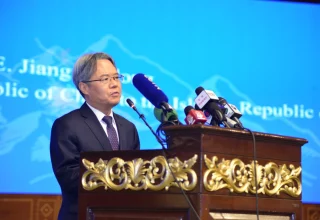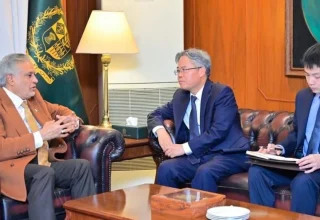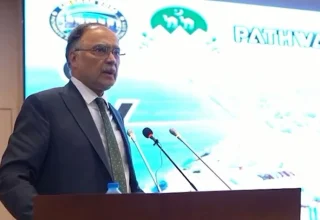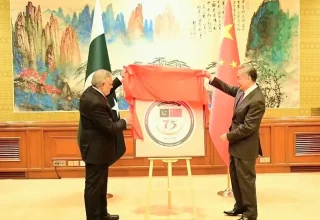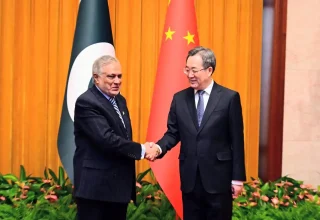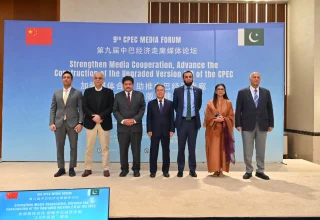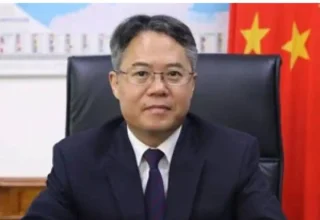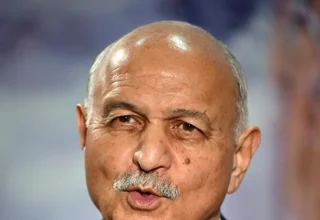
ISLAMABAD: The friendship between Pakistan and China is a model of political trust and enduring cooperation, said Mushahid Hussain Syed, former chairman of the Pakistani senate’s defense committee, calling for joint efforts to build a closer Pakistan-China community with a shared future in the new era.
Syed, who is also the chairman of the Pakistan-China Institute (PCI), said in a recent exclusive interview with Xinhua that the two countries should seize the opportunities brought about by global political and economic changes to deepen their strategic partnership further.
Reflecting on the 74 years of diplomatic ties, Syed said that from the friendship forged by the older generation of leaders, to the construction of the Karakoram Highway, also known as the China-Pakistan Friendship Highway, and the launch of the China-Pakistan Economic Corridor (CPEC), the two sides have established an unbreakable all-weather strategic cooperative partnership.
Launched in 2013, CPEC, a flagship project of the China-proposed Belt and Road Initiative, is a corridor linking Gwadar Port in Pakistan with Kashgar in Northwest China’s Xinjiang Uygur Autonomous Region, which highlights energy, transport, and industrial cooperation in the first phase, while in the new phase it expands to fields of agriculture and livelihood, among others.
Before the launch of CPEC, Pakistan faced security challenges and a lack of foreign investment, the former senator noted. “China was the first to invest in Pakistan, showing firm confidence in our future and enhancing our position on the global investment map,” he said.
“CPEC has improved connectivity, eased our electricity shortages, and created a large number of jobs and educational opportunities,” said the PCI chairman.
He pointed out that CPEC has in recent years expanded into agriculture, information technology, green energy and other sectors, boosting development in less-developed areas of Pakistan.
“In the Thar Coal Block-II Coal Electricity Integration project, local women can drive dumper trucks to transport coal,” Syed said. “The Sukkur-Multan section of the Peshawar-Karachi Motorway has created jobs for tens of thousands of locals, and improved cold chain facilities and road connectivity have benefited the fishing industry in Gwadar.”
According to him, CPEC is not just about steel and concrete. “It is a people-centered development project,” he added.
Syed suggested that the two countries deepen cooperation in industrial relocation, critical mineral development, information technology, agriculture, artificial intelligence (AI), and 5G. He also recommended that Pakistan should learn from China’s experience in drip irrigation and multiple cropping.
“Pakistan has an educated workforce, and China is a global leader in AI, robotics, cloud computing, and green energy,” said the former senator. “The potential for cooperation is huge.”
Looking ahead, Syed said Pakistan should formulate strategies aligned with China’s development priorities, particularly in electric vehicles, renewable energy, and addressing climate change. “We must combine technology with efforts to tackle climate challenges and promote green and sustainable development,” he said.
Speaking about the younger generation, the PCI chairman recalled his first visit to China more than 50 years ago as a student and as head of the Pakistan-China Youth Friendship Association. “That was the beginning of my bond with China,” he said.
“The China-Pakistan friendship is a unique relationship that has stood the test of time, built on solidarity and mutual trust,” Syed said. “China’s success story is worth learning from, and the youth of our two countries should work together to build a better future based on peace, development and prosperity.”

